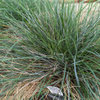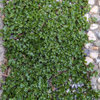I need a safe killer for sawflies
ms_minnamouse
15 years ago
Featured Answer
Comments (14)
petzold6596
15 years agoRelated Professionals
Mount Wilson Landscape Architects & Landscape Designers · East Patchogue Landscape Architects & Landscape Designers · Dallas Landscape Contractors · Eureka Landscape Contractors · Hawthorne Landscape Contractors · Hickory Hills Landscape Contractors · Nashua Landscape Contractors · Northport Landscape Contractors · Pleasant Grove Landscape Contractors · Raleigh Landscape Contractors · Shoreview Landscape Contractors · Spring Landscape Contractors · Stony Brook Landscape Contractors · Tehachapi Landscape Contractors · Vadnais Heights Landscape Contractorsrhizo_1 (North AL) zone 7
15 years agojean001
15 years agoms_minnamouse
15 years agotsugajunkie z5 SE WI ♱
15 years agoschmoo
15 years agoms_minnamouse
15 years agorhizo_1 (North AL) zone 7
15 years agojean001
15 years agoschmoo
15 years agoKimmsr
15 years agoschmoo
15 years agoms_minnamouse
15 years ago
Related Stories

DECORATING GUIDESThe Dumbest Decorating Decisions I’ve Ever Made
Caution: Do not try these at home
Full Story
LIFEYou Said It: ‘I Actually Prefer Small Houses’ and Other Quotables
Design advice, inspiration and observations that struck a chord this week
Full Story
LIFEHow to Outsmart Backyard Critters
Learn to think like a raccoon, skunk or squirrel to keep your home safe and your garden intact
Full Story
RUSTIC STYLE10 Cabin Rental Basics for City Slickers
Stay warm, dry and safe while you’re enjoying winter cabin life with this valuable advice
Full Story
PETSPet-Proofing Your Home: A Room-by-Room Guide
Not all pet dangers are obvious. Keep furry friends safe and sound by handling all of these potential hazards
Full Story
EARTH DAYThe Case for Losing the Traditional Lawn
Work less, help the environment and foster connections by just saying no to typical turf
Full Story
LIFEHow Your Landscaping Can Keep Burglars Away
Prevent home break-ins with strategic landscaping and good practices instead of menacing — and maybe less effective — measures
Full Story
KITCHEN DESIGNHouzz Call: What’s Cooking in Your Kitchen?
Most of us turn to recipes, videos and culinary shows when we cook. Where do you set your cookbook, tablet or TV screen?
Full Story
LANDSCAPE DESIGN15 Great Ideas for a Lawn-Free Yard
End the turf war for good with hardscaping, native grasses and ground covers that save water and are easier to maintain
Full Story









Kimmsr